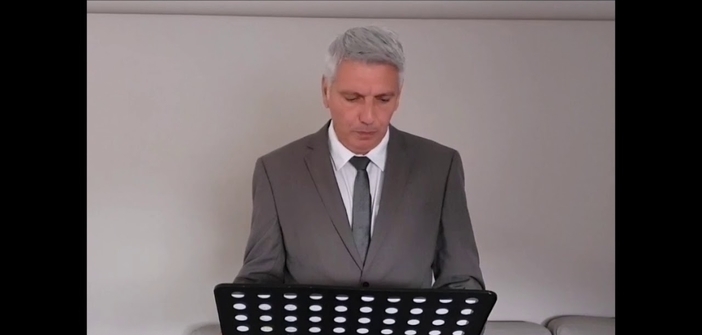The OMPE association, created in 2013 and led by Gilles Lazzarini, aims to effectively combat fires in particular. Their objective is to be able to act directly through the creation of projects designed to improve environmental preservation efforts.
How is your association structured?
This association’s goal is to raise public awareness about environmental and biodiversity issues. It has a global, not local, scope. This scale was envisioned from its inception in 2013. Back then, we were considered like black sheep compared to other associations that tended to carry out local or even communal actions.
Why did you choose to focus on technological innovation rather than prevention?
We quickly realized that the risk and danger of biodiversity loss and environmental destruction were issues affecting all countries worldwide, as evidenced by forest fires.
We have proposals for technological innovations with a global reach. Among them, we have the CO2 absorber, the creation of Darwin parks, and the SEURFF (Ultra-Rapid Forest Fire Extinction System). The idea for the SEURFF was conceived by our scientific working group and myself. We wanted to find a system to extinguish forest fires more quickly so they could be controlled within a few hours or days, depending on the fire’s intensity.
How does SEURFF work?
SEURFF is a sort of package with multiple solutions. Thus, we have a fairly innovative solution developed by several scientists around the world. It’s nitrogen propulsion. It’s important to know that the current forest firefighting system, based on water, is a system that has existed since antiquity. There have been no major developments other than adding retardants to the water and using aviation, like water bombers.
How did you come up with the idea for these projects, and what do they have in common?
It stems from synthesizing several observations we made. The first was realizing that global innovations are only driven by commercial returns. Moreover, when we think about the problem, the issue is that preserving endangered animals, reducing CO2 levels, removing particles in the air, and cleaning ocean waste do not make money and do not fit into the “cash” system. At some point, we had to ask ourselves what our needs are. Can these needs generate revenue or transform into a startup? The answer is obviously no because there is not one patron or bank that would support a project that doesn’t generate money in the current economic system, which works very well; technological innovations do not fit into this system.
On the one hand, from a purely financial perspective, creating this firefighting center would initially require a million euros. That represents 10% of the semi-annual penalty amount that the French State must pay to the State Council since July 10. This decision should allow the French State to get back in line with its directives and approaches related to improving CO2 levels. The State Council has thus imposed a ten million euro fine. We could also envision the European Commission contributing financially to this research center. It has the ability, especially since it works on the Green Deal. We also have the international Green Fund established by several countries around the world. We also have UNEP (United Nations Environment Programme) managed by the UN. If we consider, for example, a national financial surplus like Notre Dame de Paris. The donations received for its reconstruction exceeded one billion euros, whereas previous renovations of monuments in Europe reached amounts around 50 million euros. So we have surplus donations of approximately 950 million euros.
Will this center be dedicated solely to research and firefighting?
SURRFF includes surveillance drones for monitoring fire outbreaks. Several countries are already doing this, adding innovation, so there will certainly be a dedicated panel for surveillance. We have to rely on the principle of the three 30s (wind, dryness, temperature), which is well-known by firefighters who do their job very well. The three 30s can be explained as follows: a fire is hard to extinguish or even impossible if the air temperature exceeds 30°C, humidity is below 30%, and winds are higher than 30 km/h. For example, during last year’s fires in Australia, all three parameters were exceeded, whereas it only takes one criterion to be exceeded to make extinguishing a fire difficult. In Sweden and Siberia, two of the parameters were exceeded. We cannot operate with these new fires.
What is your opinion on the actions of current politicians regarding ecology?
We are in a policy of repair and band-aids, both politically and functionally, affecting all aspects of the global economy and policy. These are countries capable of healing wounds and therefore of making decisions in hindsight, but politicians are incapable of anticipating and making decisions beforehand to prevent tragedies and various disasters.
What about your political party P5?
We are a new party, so we have no ties with existing parties like the PS, La République En Marche, LR, etc., nor with French lobbies or current ministries, civil servants, or diplomats.
Of course, we will be present on all fronts. One of our strong topics is to position the Minister of Ecology above all others so that he/she is transversal and all decisions are made based on the Ministry of Ecology. This is already being discussed between the President and the Prime Minister. For example, we could implement taxes on agriculture or subsidies, and everything would go through ecology. It is important to know that P5 is a party like any other. We primarily address the usual issues of the citizen and the country. We are currently about 250 members.


